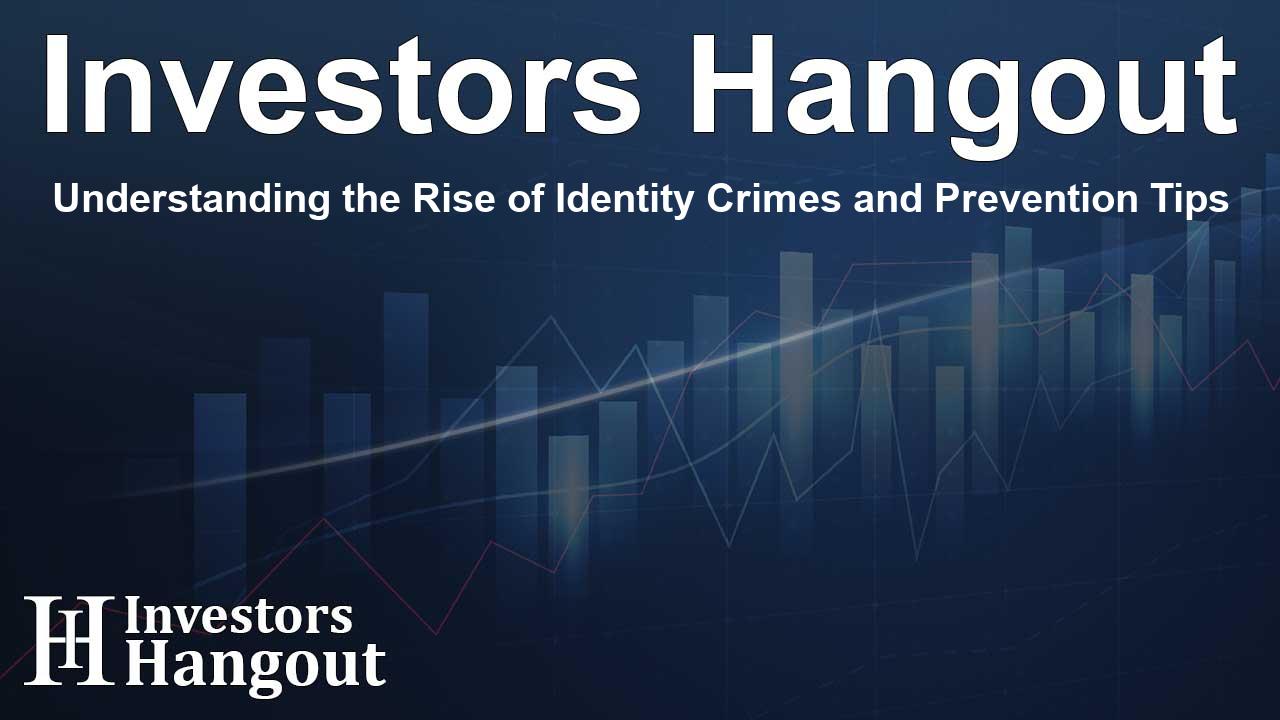Understanding the Rise of Identity Crimes and Prevention Tips

Identity Crimes: A Growing Concern
In recent times, the surge in identity crime has raised significant alarm within various sectors, including life insurance, healthcare, and finance. As technology becomes more intertwined in our daily lives, the opportunities for criminals to exploit personal information have multiplied dramatically. According to experts at the National Insurance Crime Bureau (NICB), fraudulent activities stemming from identity theft are expected to rise sharply. This reality challenges both consumers and industries alike.
The Mechanics of Identity Theft
Identity theft is no longer limited to straightforward scenarios where a criminal simply uses someone else's name. Instead, we now face the sophisticated threat of synthetic identities. These identities are constructed using a blend of real and fictitious personal details, which might include stolen social security numbers, names, dates of birth, and complete contact information. This alarming trend indicates that nearly a quarter of identity theft claims are tied to these synthetic identities.
Why Is Synthetic Identity Fraud Growing?
Synthetic identity fraud has emerged as the most rapidly evolving financial crime, eclipsing traditional identity theft methods. The complexity of these schemes makes them increasingly challenging to trace and manage. Ian Laughlin, the director of data sciences at NICB, explains that the evolution of identity crimes gives fraudsters a more extended opportunity to operate undetected, leading to significant financial repercussions for consumers.
The Financial Impact of Identity Crimes
Recent analyses covering thousands of insurance claims highlight a troubling year-over-year rise in identity crime-related claims. The financial toll of this burgeoning crime nexus led to losses estimated at $47 billion in just one year. Alarmingly, the NICB forecasts a staggering 49% increase in fraud linked to identity theft in the near future.
Consumer Advisory: Protecting Yourself
To combat the rising tide of identity-related crimes, NICB has recommended consumers employ a series of measures designed to safeguard their personal information:
- Lock Your Credit Report: Consumers should reach out to major credit reporting agencies like Experian, Equifax, or TransUnion to lock their credit reports from unauthorized access.
- Utilize a Password Manager: Securely managing multiple passwords is crucial; a password manager can help protect your online accounts by generating strong, unique passwords.
- Create Unique User IDs and Passwords: Each online service should feature distinct login credentials to thwart potential unauthorized access.
- Limit Carrying Personal Documents: Keep essential documents like Social Security cards in a secure place instead of carrying them unnecessarily.
- Be Cautious of Information Sharing: Avoid disclosing personal information via unsecured websites or to unknown callers to minimize risks.
- Request Data Deletion: Be proactive about your online footprint and consider whether companies should delete your personal data after use.
- Adopt Two-Factor Authentication: Whenever possible, use dual identity verification methods when accessing sensitive online accounts.
As Ian Laughlin notes, many individuals are just one data breach away from having their identifiers compromised, putting them at risk for an array of identity crimes.
Getting Help and Staying Informed
If you suspect that you might be a victim of identity theft, it is imperative to contact your insurance provider immediately and reach out to the NICB hotline. This hotline exists to assist consumers and provide guidance during a potential identity crisis.
About NICB
The National Insurance Crime Bureau (NICB) is a premier non-profit organization focused on the prevention and combatting of insurance crime through comprehensive strategies. Located in Illinois, NICB collaborates with over 1,200 property and casualty insurance companies to provide analytics, intelligence, and advocacy. Their dedication to reducing insurance fraud is paramount to protecting consumers.
Frequently Asked Questions
What is identity theft?
Identity theft refers to the unlawful use of someone else's personal information, often to commit fraud or other crimes.
How can I protect my identity online?
To safeguard your identity, use strong passwords, enable two-factor authentication, and be cautious about sharing personal information.
What should I do if my identity is stolen?
If you suspect identity theft, contact your insurance provider and the National Insurance Crime Bureau for assistance and guidance.
What are synthetic identities?
Synthetic identities are fictitious personas created using a mixture of real and fake personal information, often used for fraudulent purposes.
How do identity crimes affect consumers financially?
Identity crimes can lead to significant financial losses, impacting insurance claims and overall consumer trust in financial systems.
About The Author
Contact Caleb Price privately here. Or send an email with ATTN: Caleb Price as the subject to contact@investorshangout.com.
About Investors Hangout
Investors Hangout is a leading online stock forum for financial discussion and learning, offering a wide range of free tools and resources. It draws in traders of all levels, who exchange market knowledge, investigate trading tactics, and keep an eye on industry developments in real time. Featuring financial articles, stock message boards, quotes, charts, company profiles, and live news updates. Through cooperative learning and a wealth of informational resources, it helps users from novices creating their first portfolios to experts honing their techniques. Join Investors Hangout today: https://investorshangout.com/
The content of this article is based on factual, publicly available information and does not represent legal, financial, or investment advice. Investors Hangout does not offer financial advice, and the author is not a licensed financial advisor. Consult a qualified advisor before making any financial or investment decisions based on this article. This article should not be considered advice to purchase, sell, or hold any securities or other investments. If any of the material provided here is inaccurate, please contact us for corrections.
